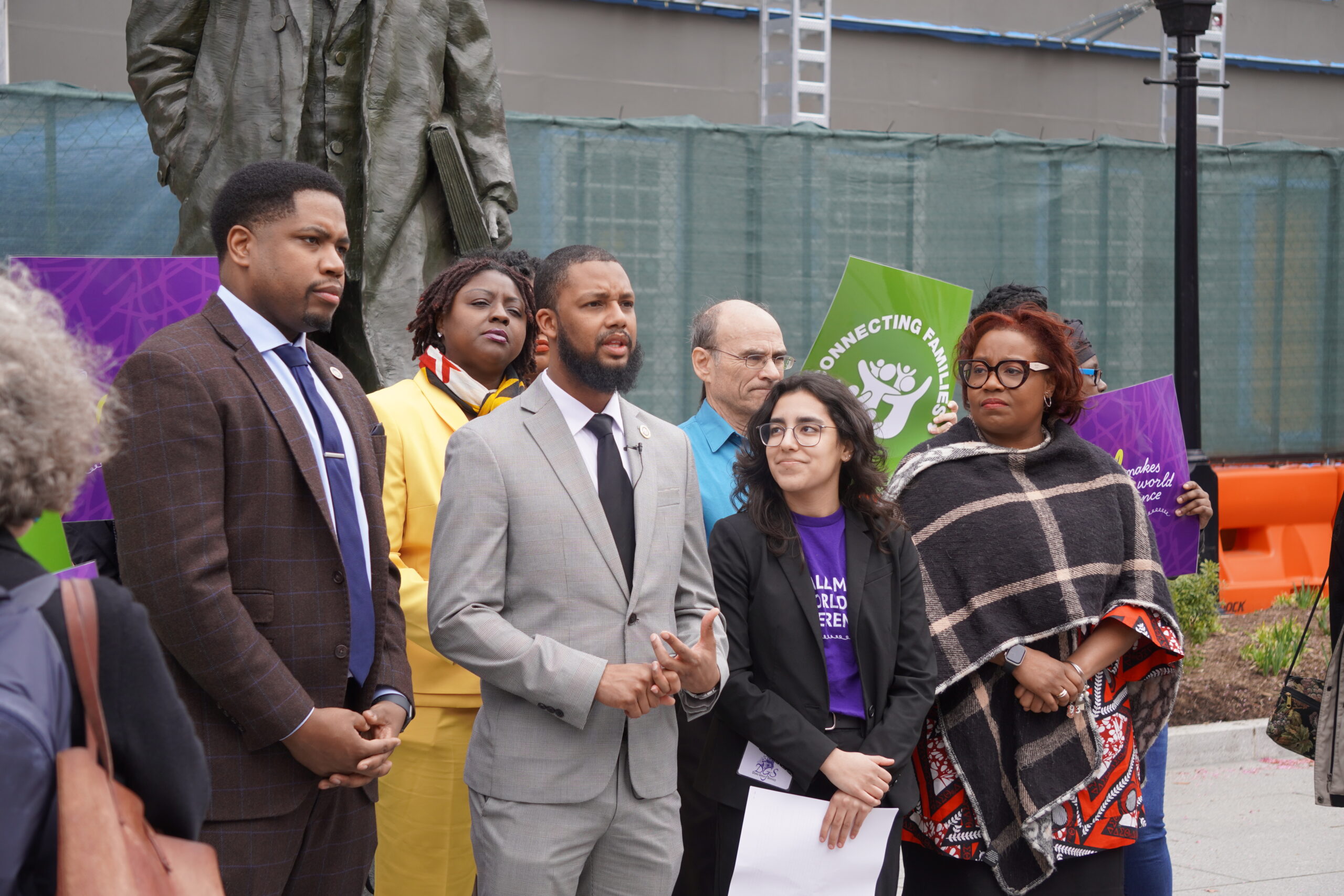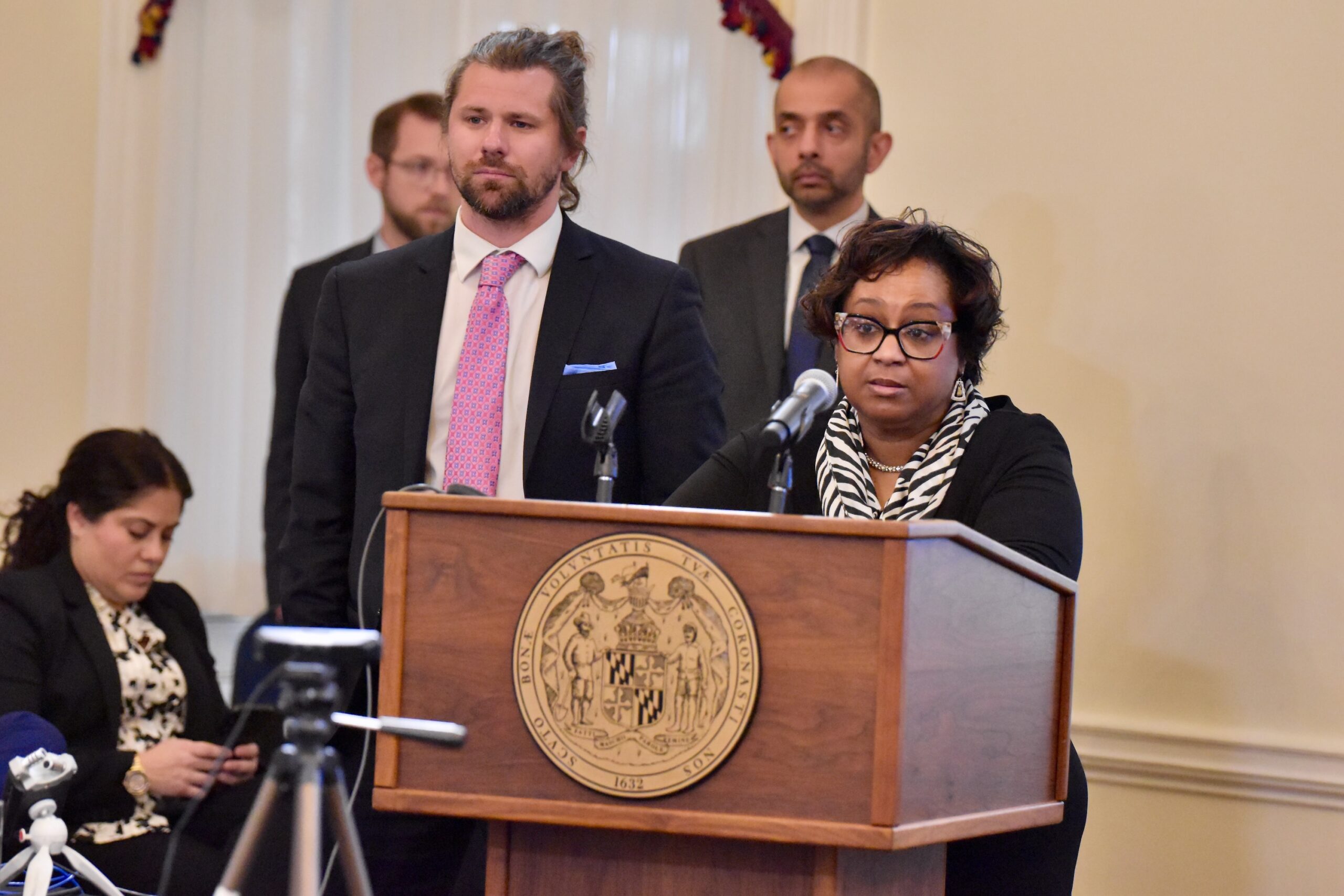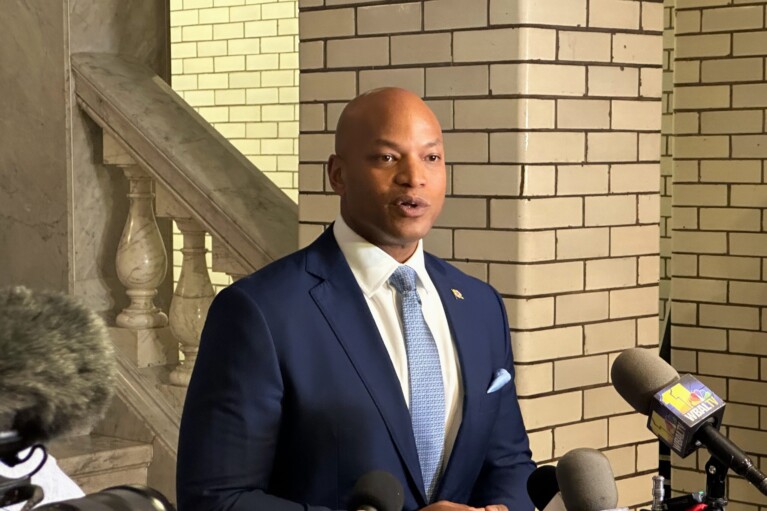Quality and quantity of correctional services under scrutiny in Annapolis

Del. Marlon Amprey (D-Baltimore City) recalls when he was a youth and his mother paid for deodorant, lotion and other toiletries for her husband and son when they were incarcerated.
Amprey said at times he and his mother didn’t talk to them because she couldn’t afford to pay for her husband and son to make phone calls from prison.
“I can’t say how much it cost, but it cost enough for my mother to complain about it and cost enough for us to feel it,” Amprey, 37, said last week in an interview. His father and brother are no longer incarcerated and currently reside in Oklahoma, he said.
Amprey joined several delegates and criminal justice advocates at Lawyers Mall in Annapolis to speak in support of House Bill 1366 sponsored by Del. Kent Roberson (D-Prince George’s). The legislation would require the state Department of Public Safety and Correctional Services to allow people in prison to make phone calls free to family, friends and other loved ones.
The bill was one of a few pieces of legislation addressing correctional services and inmates’ lives that have been discussed in Annapolis in recent days.
About 90 minutes after prison reform advocates gathered at Lawyers Mall on Thursday, the House Judiciary Committee reviewed Roberson’s phone call legislation.
“It’s unfortunate that we are determining whether we want to speak to our loved ones because of the cost of phone calls,” he told the panel. “Not only that, [but] the reality is that these individuals are smuggling in cell phones. We as a state are not helping them to rehabilitate if we are making it cost prohibitive for them to stay connected.”
According to the bill, a state correctional facility would be responsible for paying any cost charged by a telephone service provider.
The bill wouldn’t go into effect until July 1, 2025.
The Senate version sponsored by Sen. Jeff Waldstreicher (D-Montgomery) was heard last Tuesday in the Judicial Proceedings Committee.
Alyssa Ackbar, a policy associate with Worth Rises, a criminal justice advocacy organization in New York, has worked with other states on an initiative called “Connecting Families.” Similar legislation has been approved in California, Colorado, Connecticut, Minnesota and Massachusetts.
The Colorado legislation approved last year is being implemented on a staggered timeline with its state Department of Corrections covering 25% of total communication service costs from Sept. 1, 2023, through June 30 of this year. From July 1 to June 30, 2025 the department must cover 35% of the costs. Beginning July 1, 2025, the department must cover 100% of the costs.
In Maryland, Ackbar said incarcerated people are charged 45 cents for a 15-minute phone call.
“If a person has multiple loved ones they want to talk to, those costs add up,” she said. “It’s really a burden that falls on incarcerated people and their families.”
Mark Vernarelli, a spokesperson for the Department of Public Safety and Correctional Services, said the state’s 3-cents-per-minute charge for phone calls is one of the lowest in the nation, well below the 19-cents-per-minute maximum allowed by the Federal Communications Commission.
“The Maryland Department of Public Safety and Correctional Services supports and embraces the family, friends, and loved ones of those who have been incarcerated to maintain contact,” Vernarelli said in an email. “The Department permits and encourages an incarcerated individual to correspond with family, friends, and loved ones with minimum interference and consistent with the facility’s legitimate security needs.”
According to a 2023 report from Maryland Correctional Enterprises, the daily stipend for participants in the Department of Public Safety’s vocational training program is $9.53.
Voting
On a day when the Judiciary Committee reviewed more than a dozen pieces of legislation focused on correctional services, Del. Jheanelle K. Wilkins (D-Montgomery) presented House Bill 1022, which would repeal current law that prohibits any individual who was convicted of a felony and is incarcerated from voting.It also would require the state Board of Elections to secure ballot boxes in each prison and provide a toll-free voter hotline for those incarcerated.
And it would establish a Voting Rights Ombudsman for inmates to oversee the bill’s implementation and existing voting requirements for incarcerated and returning citizens. The ombudsman would also make recommendations to the Board of Elections and the Department of Public Safety and Correctional Services.
The main goal, Wilkins said, is to expand voting rights for everyone.
“The right to vote should be an unalienable right. That means that it cannot be transferred. It cannot be taken away and it cannot be denied,” she said. “I am bringing this bill because voting should not be a privilege or a punishment of who we decide is good versus bad.”
The push to allow people in prison in Maryland to vote began several years ago with criminal justice reform advocates such as Nicole Hanson-Mundell, co-lead of Expand the Ballot, Expand the Vote Coalition.
“I can say we are ready,” she said. “The state agencies are ready. You have voting advocates across the state that are ready….”
The department, which operates 13 state correctional facilities and oversees five local correctional facilities in Baltimore, submitted a “letter of information” on the legislation.
The department’s letter states that provisions of the bill “are duplicative” because the department already has a “robust” voter program in place and works collaboratively with the state and local election boards.
“The department ensures election notices, deadlines, and promotional information to advise incarcerated individuals of voter eligibility requirements, right to request a voter registration are posted throughout the correctional facilities and are also available to incarcerated individuals through case management,” according to the letter. “The department will continue to ensure that all eligible incarcerated individuals have access to election material as well as the opportunity to vote.”
More voting
The House of Delegates began gave preliminary approval Friday to House Bill 627, sponsored by Wilkins, which would offer prison inmates the automatic option of registering to vote when they are about to be released.
“We already do automatic voter registration in several [state] agencies, and it’s successful,” Wilkins said.
Del. Matthew Morgan (R-St. Mary’s) asked several questions, expressing some incredulity that the legislation “turns corrections facilities into voter registration centers.”
He also wondered what addresses returning citizens would use on their voter registration forms.
Wilkins replied said they would likely use the addresses where they were planning to go after finishing their prison sentence.
“When they’re being released, they’re going somewhere,” she said.
Morgan offered an amendment to the bill that would also offer automatic voter registration to people who purchase state hunting and fishing licenses from the Department of Natural Resources (DNR). He noted that four times as many former inmates register as Democrats rather than Republicans, and suggested that those who buy hunting and fishing licenses may be a more diverse group politically.
“If you want to do automatic voter registration, we should expand it to every agency that interfaces with the public, including people who have applied for hunting and fishing licenses,” Morgan said.
But Wilkins pushed back, arguing that it isn’t clear if DNR is equipped to handle voter registration procedures.
“There are unfortunately a few issues with this amendment,” she said.
Morgan’s amendment was defeated on a 37-95 party line vote. A final vote on the broader bill is expected in the House early this week. There is no equivalent Senate bill.
Josh Kurtz contributed to this report.




 Creative Commons Attribution
Creative Commons Attribution